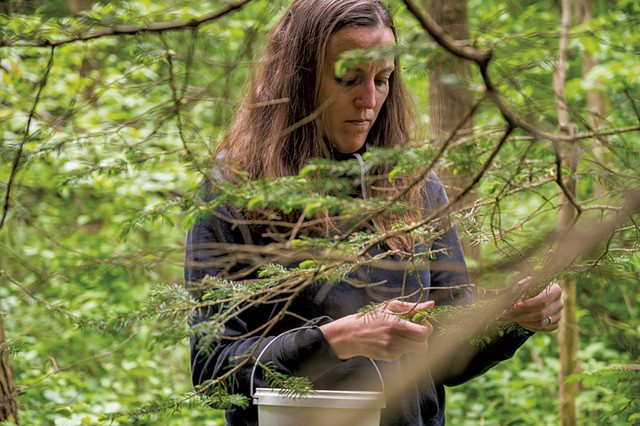
- © Anzebizjan | Dreamstime
- Forest foraging
Earlier this year, Cabot resident Gwendolyn Hallsmith wanted to see her town begin to make amends for Vermont's history of violence against Indigenous people. So, with the help of Don Stevens, chief of the Nulhegan Band of the Coosuk-Abenaki Nation, Hallsmith drew up a petition to grant Abenaki people the right to forage for food, medicinal plants and art-making materials in the Cabot town forest.
"I really think that in order to address climate change and runaway inequality ... we need to change our culture and adapt and regenerate," said Hallsmith, founder of the nonprofit Vermonters for a New Economy, which advocates for repairing the harms of capitalism and environmental destruction. "And one really important step to do that is to make reparations for the things our culture has done to other people."
Hallsmith collected enough signatures to get the proposal on this year's Town Meeting Day ballot. On March 1, Cabot became the first municipality in Vermont to approve a ballot item granting Indigenous people the right to forage on public land.
The town had no rules against foraging in the forest before the vote, explained Hallsmith, but she believes that these kinds of official declarations have power.
"When I was collecting signatures, the most common reaction I'd get was, 'Well, can't they do that already?'" Hallsmith said. "Now, it's explicitly allowed."
As a growing number of public and private institutions in the state adopt land acknowledgements — the practice of formally recognizing that white settlers stole what is now Vermont from Indigenous people — Stevens said access agreements are the logical next step.
"If you're acknowledging that we're on the unceded territory of the Abenaki, then you should give us land access so we can continue to gather our nuts, foods and medicines," added Stevens.
Several Vermont towns, including Richmond and Hardwick, are exploring similar measures. Stevens hopes that Cabot will provide a helpful case study for other communities as they reckon with Vermont's legacy.
"Would it be ideal to have our land back? Absolutely. Is that going to happen? Probably not," Stevens said. "So if Europeans are uncomfortable with giving us the land, then the next best thing is that they continue to have control of it, but we still have access."









Comments
Comments are closed.
From 2014-2020, Seven Days allowed readers to comment on all stories posted on our website. While we've appreciated the suggestions and insights, right now Seven Days is prioritizing our core mission — producing high-quality, responsible local journalism — over moderating online debates between readers.
To criticize, correct or praise our reporting, please send us a letter to the editor or send us a tip. We’ll check it out and report the results.
Online comments may return when we have better tech tools for managing them. Thanks for reading.